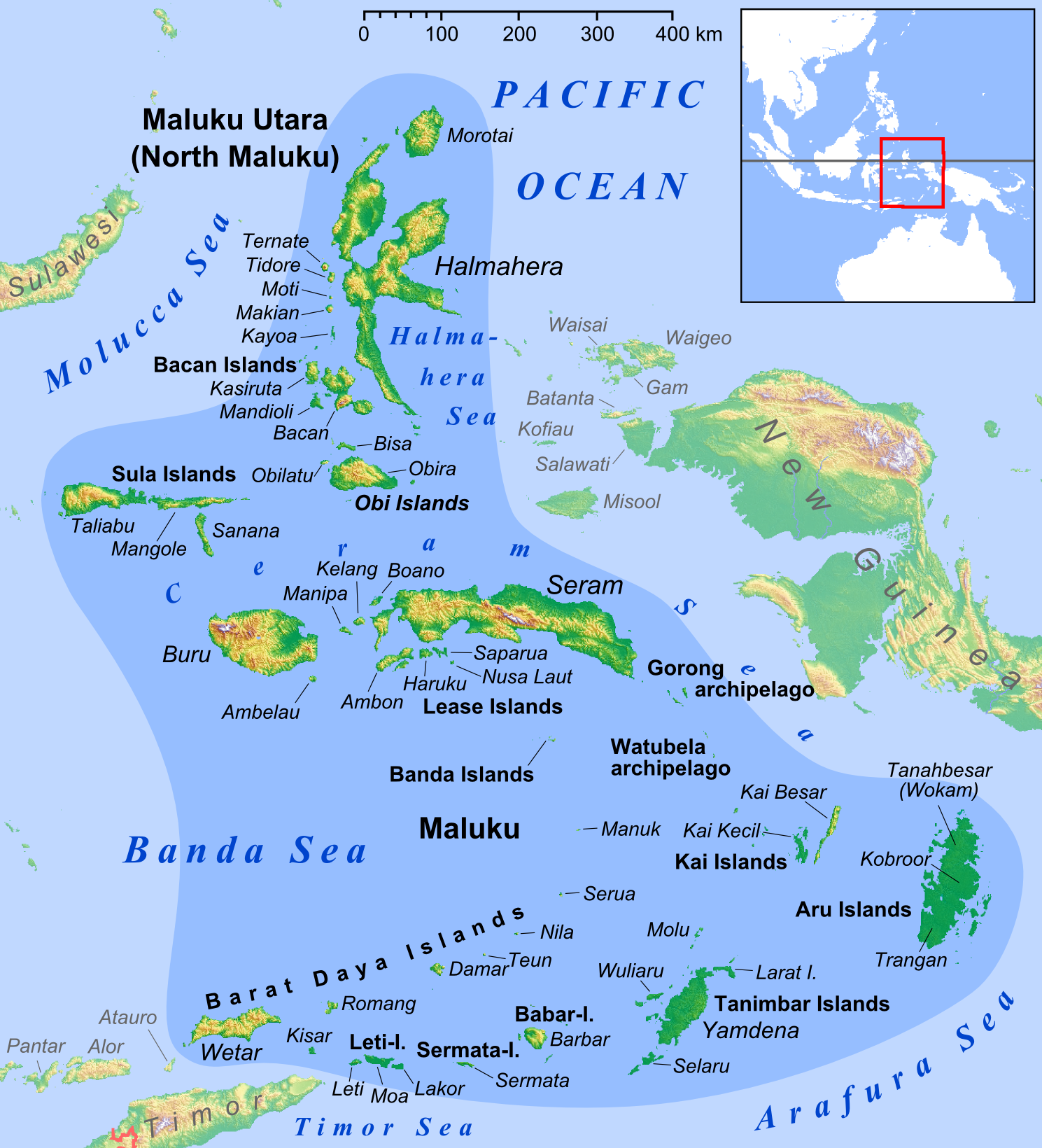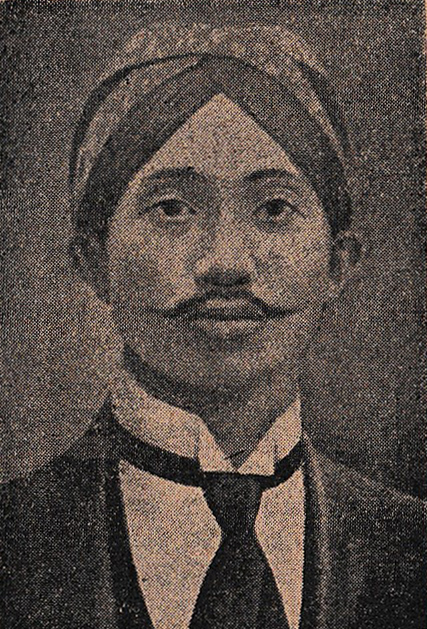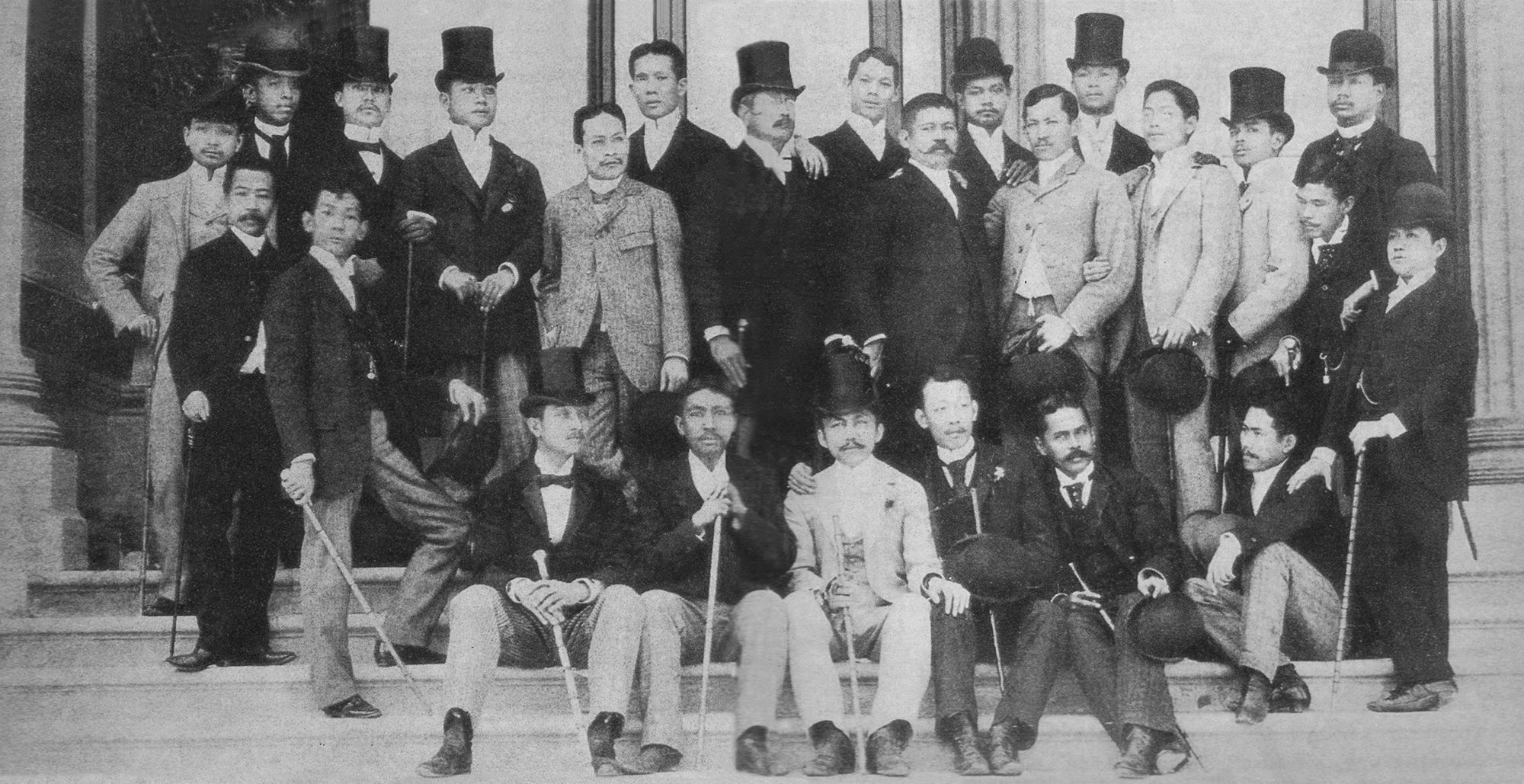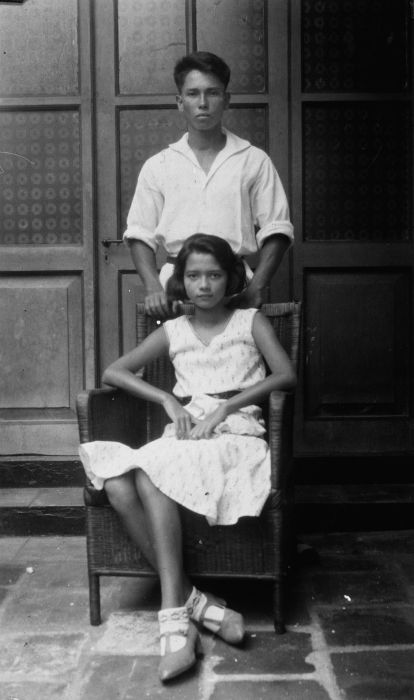|
Indische Party
The Indische Partij (IP) or Indies Party was a short-lived but influential political organisation founded in 1912 by the Indo-European (Eurasian) journalist E.F.E. Douwes Dekker and the Javanese physicians Tjipto Mangoenkoesoemo and Soewardi Soerjaningrat. As one of the first political organisations pioneering Indonesian nationalism in the colonial Dutch East Indies it inspired several later organisations such as the ''Nationaal Indische Party'' (N.I.P.) or ''Sarekat Hindia'' in 1919 and Indo Europeesch Verbond (I.E.V.) in 1919. Its direct successor was Insulinde. Foundation Although short lived and accumulating a little over 7,000 members its influence as the first multi-racial political party that clearly stated the, at the time radical, notion of independence was far reaching. The IP’s aim was to unite all native peoples of the Indies in a struggle for an independent nation. When the IP was banned and its leadership exiled, members of the IP founded the equally radical I ... [...More Info...] [...Related Items...] OR: [Wikipedia] [Google] [Baidu] |
Ernest Douwes Dekker
Ernest François Eugène Douwes Dekker also known as '' Setyabudi'' or ''Setiabudi'' (8 October 1879 – 28 August 1950) was an Indonesian-Dutch nationalist and politician of Indo descent. He was related to the famous Dutch anti-colonialism writer Multatuli, whose real name was Eduard Douwes Dekker ("Douwes Dekker" being their surname). In his youth, he fought in the Second Boer War in South Africa on the Boer side. His thoughts were highly influential in the early years of the Indonesian freedom movement. After Indonesian independence, he adopted the Sundanese name Danoedirdja Setiaboedi. Early years Douwes Dekker was born in Pasuruan, in the north east of Java, 80 km south of Surabaya. His father was Auguste Henri Edouard Douwes Dekker, a broker and bank agent, of a Dutch family living in the then-Dutch East Indies. His Indo (Eurasian) mother was Louisa Margaretha Neumann, of half-German and half- Javanese descent. Douwes Dekker's great-uncle was the famous writer Eduar ... [...More Info...] [...Related Items...] OR: [Wikipedia] [Google] [Baidu] |
Douwes Dekker, Tjipto Mangunkusumo, And Suryadi Suryaningrat (Ki Hadjar Dewantoro), 20 Mei Pelopor 17 Agustus, P11 (born 1987), Dutch kickboxer
{{Surname ...
Douwes is a surname. Notable people with the surname include: *Pia Douwes (born 1964), Dutch actress *Eduard Douwes Dekker, Dutch novelist and writer *Ernest Douwes Dekker (1879–1950), Indonesian politician *Brian Douwes Brian "Bad Ass" Douwes (born 21 November 1987 in Beverwijk) is a Dutch kickboxer fighting out of Team Spirit, formerly known as Top Team Beverwijk in Beverwijk. He competed in K-1, Enfusion Live, Superkombat and Glory. As of 1 May 2017, he i ... [...More Info...] [...Related Items...] OR: [Wikipedia] [Google] [Baidu] |
Sjahrir
Sutan Sjahrir (5 March 1909 – 9 April 1966) was an Indonesian politician, and revolutionary independence leader, who served as the first Prime Minister of Indonesia, from 1945 until 1947. Previously, he was a key Indonesian nationalist organizer in the 1930s and 1940s. Unlike some of his colleagues, he did not support the Japanese during the Japanese occupation and fought in the resistance against them. He was considered to be an idealist and an intellectual. Born to a Minangkabau family, he studied at the University of Amsterdam, and later became a law student at the Leiden University. He became involved in Socialist politics, and Indonesia's struggle for independence, becoming a close associate of the older independence activist Mohammad Hatta, who would later become the first Vice President of Indonesia. During the Japanese occupation of the Dutch East Indies, Sjahrir fought in the resistance. Towards independence on 17 August 1945, he was involved in the Rengasdengklok I ... [...More Info...] [...Related Items...] OR: [Wikipedia] [Google] [Baidu] |
Banda Islands
The Banda Islands ( id, Kepulauan Banda) are a volcanic group of ten small volcanic islands in the Banda Sea, about south of Seram Island and about east of Java, and constitute an administrative district (''kecamatan'') within the Central Maluku Regency in the Indonesian province of Maluku. The islands rise out of deep ocean and have a total land area of approximately . They had a population of 18,544 at the 2010 Census and 20,924 at the 2020 Census. Until the mid-19th century the Banda Islands were the world's only source of the spices nutmeg and mace, produced from the nutmeg tree. The islands are also popular destinations for scuba diving and snorkeling. The main town and administrative centre is Bandanaira, located on the island of the same name. History Pre-European history The first documented human presence in the Banda Islands comes from a rock shelter site on Pulau Ay that was in use at least 8,000 years ago. The earliest mention of the Banda Islands are fou ... [...More Info...] [...Related Items...] OR: [Wikipedia] [Google] [Baidu] |
Sukarno
Sukarno). (; born Koesno Sosrodihardjo, ; 6 June 1901 – 21 June 1970) was an Indonesian statesman, orator, revolutionary, and nationalist who was the first president of Indonesia, serving from 1945 to 1967. Sukarno was the leader of the Indonesian struggle for independence from the Dutch colonialists. He was a prominent leader of Indonesia's nationalist movement during the colonial period and spent over a decade under Dutch detention until released by the invading Japanese forces in World War II. Sukarno and his fellow nationalists collaborated to garner support for the Japanese war effort from the population, in exchange for Japanese aid in spreading nationalist ideas. Upon Japanese surrender, Sukarno and Mohammad Hatta declared Indonesian independence on 17 August 1945, and Sukarno was appointed president. He led the Indonesian resistance to Dutch re-colonisation efforts via diplomatic and military means until the Dutch recognition of Indonesian independence ... [...More Info...] [...Related Items...] OR: [Wikipedia] [Google] [Baidu] |
Subversive
Subversion () refers to a process by which the values and principles of a system in place are contradicted or reversed in an attempt to transform the established social order and its structures of power, authority, hierarchy, and social norms. Subversion can be described as an attack on the public morale and, "the will to resist intervention are the products of combined political and social or class loyalties which are usually attached to national symbols. Following penetration, and parallel with the forced disintegration of political and social institutions of the state, these tendencies may be detached and transferred to the political or ideological cause of the aggressor". Subversion is used as a tool to achieve political goals because it generally carries less risk, cost, and difficulty as opposed to open belligerency. Furthermore, it is a relatively cheap form of warfare that does not require large amounts of training. A subversive is something or someone carrying the potential ... [...More Info...] [...Related Items...] OR: [Wikipedia] [Google] [Baidu] |
Sarekat Islam
Sarekat Islam or Syarikat Islam ( 'Islamic Association' or 'Islamic Union'; SI) was an Indonesian socio-political organization founded at the beginning of the 20th Century during the Dutch colonial era. Initially, SI served as a cooperative of Muslim Javanese batik traders to compete with the Chinese-Indonesian big traders. From there, SI rapidly evolved into a nationalist political organization that demanded self-governance against the Dutch colonial regime and gained wide popular support. SI was especially active during the 1910s and the early 1920s. By 1916, it claimed 80 branches with a total membership of around 350,000. SI was eventually embroiled in an internal conflict between the Islamic moderates and the radical communist members who urged firmer anti-colonialist and anti-capitalist actions. In 1921, the organization was split and communist members founded a separate entity known as the Sarekat Islam Merah (Red Islamic Association) which was absorbed into the Communi ... [...More Info...] [...Related Items...] OR: [Wikipedia] [Google] [Baidu] |
Philippines
The Philippines (; fil, Pilipinas, links=no), officially the Republic of the Philippines ( fil, Republika ng Pilipinas, links=no), * bik, Republika kan Filipinas * ceb, Republika sa Pilipinas * cbk, República de Filipinas * hil, Republika sang Filipinas * ibg, Republika nat Filipinas * ilo, Republika ti Filipinas * ivv, Republika nu Filipinas * pam, Republika ning Filipinas * krj, Republika kang Pilipinas * mdh, Republika nu Pilipinas * mrw, Republika a Pilipinas * pag, Republika na Filipinas * xsb, Republika nin Pilipinas * sgd, Republika nan Pilipinas * tgl, Republika ng Pilipinas * tsg, Republika sin Pilipinas * war, Republika han Pilipinas * yka, Republika si Pilipinas In the recognized optional languages of the Philippines: * es, República de las Filipinas * ar, جمهورية الفلبين, Jumhūriyyat al-Filibbīn is an archipelagic country in Southeast Asia. It is situated in the western Pacific Ocean and consists of around 7,641 islands t ... [...More Info...] [...Related Items...] OR: [Wikipedia] [Google] [Baidu] |
Ilustrado
The Ilustrados (, "erudite", "learned" or "enlightened ones") constituted the Filipino educated class during the Spanish colonial period in the late 19th century. Elsewhere in New Spain (of which the Philippines were part), the term ''gente de razón'' carried a similar meaning. They were middle class Filipinos, many of whom were educated in Spain and exposed to Spanish liberal and European nationalist ideals. The ''Ilustrado'' class was composed of native-born intellectuals and cut across ethnolinguistic and racial lines—'' Indios'', ''Insulares'' and ''Mestizos'', among others—and sought reform through "a more equitable arrangement of both political and economic power" under Spanish tutelage. Stanley Karnow, in his '' In Our Image: America's Empire in the Philippines'', referred to the ''Ilustrados'' as the "rich Intelligentsia" because many were the children of wealthy landowners. They were key figures in the development of Filipino nationalism.< ... [...More Info...] [...Related Items...] OR: [Wikipedia] [Google] [Baidu] |
Indo Europeesch Verbond
The Indo Europeesch Verbond (IEV) or Indo European Alliance was a social movement and political organisation founded in 1919 by the Indo-European (Eurasian) community of the Dutch East Indies that fought for race equality and political say in late colonial Indonesia during the early 20th century. It was one of the first and largest European organisations in the Dutch East Indies that formulated a desire for an independent nation albeit in relation with a Dutch dominion and supported the Soetardjo Petition of 1936 that aimed for an independent status within a Dutch commonwealth.Willems, Wim ''Sporen van een Indisch verleden (1600-1942), Part II by van Hoogevest, W.M.'' (COMT, Leiden, 1994) P.81,84 Its vision was to retain an important position for the Indo European (Eurasian) segment of Indonesian society after obtaining independence from the Netherlands. Founding father of this organisation was Karel Zaalberg chief editor of one of the country's largest newspapers (Bataviaasc ... [...More Info...] [...Related Items...] OR: [Wikipedia] [Google] [Baidu] |
Tjipto Mangoenkoesoemo
Cipto Mangunkusumo or Tjipto Mangoenkoesoemo (4 March 1886 in Pecangakan, Ambarawa, Semarang – 8 March 1943 in Batavia) was a prominent Indonesian independence leader and Sukarno's political mentor. Together with Ernest Douwes Dekker and Soewardi Soerjaningrat he was one of the three founders of the influential Indische Party, a political party disseminating the idea of self-government of the Dutch East Indies. After the party was labeled subversive by colonial court of law in 1913, he and his fellow IP leaders were exiled to the Netherlands. Cipto advocated an Indies-based nationalism rather than Javanese nationalism. Unlike other Javanese nationalist leaders, Cipto's belief in democracy remained strong until the end of this life and in his view the traditional character of feudal Javanese civilization had to change. He considered western education and its subsequent social and cultural dislocation as indispensable in creating a revolutionary atmosphere. He disagreed with Budi U ... [...More Info...] [...Related Items...] OR: [Wikipedia] [Google] [Baidu] |
Big Tent
A big tent party, or catch-all party, is a term used in reference to a political party's policy of permitting or encouraging a broad spectrum of views among its members. This is in contrast to other kinds of parties, which defend a determined ideology, seek voters who adhere to that ideology, and attempt to convince people towards it. Examples Armenia Following the 2018 Armenian parliamentary election, the My Step Alliance rose to power on an anti-corruption and pro-democracy platform. The alliance has been described as maintaining a big tent ideology, as the alliance did not support any one particular political position. Instead, it focused on strengthening Armenia's civil society and economic development. Australia The Liberal Party of Australia and its predecessors originated as an alliance of liberals and conservatives in opposition to the Australian Labor Party, beginning with the Commonwealth Liberal Party in 1909. This ideological distinction has endured to the presen ... [...More Info...] [...Related Items...] OR: [Wikipedia] [Google] [Baidu] |
%2C_20_Mei_Pelopor_17_Agustus%2C_p11.jpg)






